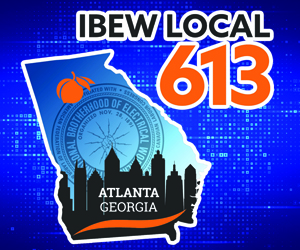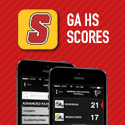What a shame.
The humble, bespectacled man who guided Penn State football almost flawlessly for 46 seasons is gone after being forced out of a University he made his own.
His tenure as head coach in State College started out modestly with a 5-5 record in 1966. He won his first game against Maryland 15-7 at home in Beaver Stadium. Two seasons later, he had his first undefeated season and won the Orange Bowl.
A student and lover of the classics, it was irony of mythological proportions when Paterno won his first national championship in 1982 with an 11-1 team after not winning it with four unbeaten squads.
While his career will always be overshadowed due to his mishandling of the Sandusky situation, Paterno will hopefully also be remembered for the unique and heartfelt way he ran his program in Happy Valley.
Here are just a few reasons why we should remember him for his positive influence on his thousands of former players and on everyone associated with college football:
- He once told a high school player to read 12 novels and submit reports for each one to his wife or he wouldn’t recruit him. That player was Bob White, who wound up getting two degrees from PSU and a University job.
- He once encouraged a player to become a lawyer saying “I never made it. You could, kid. You’re smart.” That player was Adam Taliaferro, who was nearly paralyzed on the field as a Nittany Lion. Taliaferro is now a practicing attorney.
- He drove a Ford Tempo for years despite heading one of America’s most valuable football programs.
- He rolled up his pant legs to decrease dry cleaning bills.
- He went to the Board of Regents and asked them to increase entrance requirements for athletes. Could you imagine Nick Saban or Urban Meyer doing that?
- He donated so much to the University (for more than just athletics) that the school named the library after him.
- He turned Penn State from a self-proclaimed “cow college” to a member of the academically and athletically prestigious Big Ten.
- He holds the NCAA record for most wins as a coach with 409, all of which came while coaching the Nittany Lions.
The son of Angelo Paterno, who worked his way through law school at night in Brooklyn and worked two jobs to help pay for Joe’s catholic high school, matriculated at Brown University of the preeminent Ivy League. There, Paterno played quarterback and defensive back under Charles “Rip” Engle.
After graduating from Brown, Paterno was en route to Boston University where he would enter law school. But Engle was hired to coach at Penn State, and he convinced his former quarterback to join him on the staff. Joe Paterno then became employed by Penn State in 1950; 61 years later, the long-term love affair between coach and school ended under cloudy circumstances.
In between, Paterno set the benchmark for winning while doing things the right way. His tenure spanned a time when you could count the number of bowl games on two hands to a time when that many bowl games change names each year. While seemingly everything else in the sport changed during his career, two things remained the same in Happy Valley – winning and doing things the right way.
Paterno’s teams set records for most bowl games under a coach, most bowl wins, had a whopping 21 double-digit win seasons and won 11 games or more at least twice in every decade from the 1960’s to the 2000’s. He holds the NCAA record for most seasons at one school as head coach and the most seasons at one school as a coach in any capacity (62). When JoePa took over in 1966, Beaver Stadium held 46,284. It now holds 106,572.
And perhaps even more impressively, during his decades of service in Happy Valley, the NCAA never sniffed around
While many would agree that while Paterno probably should’ve retired years before he was forced out and that he grossly mishandled the information he was given about Jerry Sandusky’s conduct, he should be remembered mostly for the positive things he did throughout his epic career.
His mistakes should be a negative footnote to his life, while the multitude of positives he imparted on those around him should be viewed as his true body of work.






















































